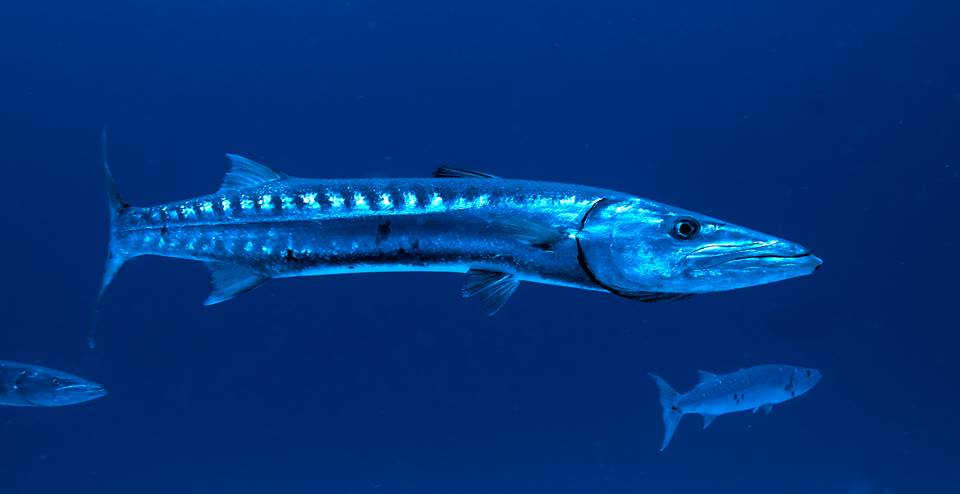If you’ve been diving in Cozumel, chances are good you’ve come across the Great Barracuda (sphraena barracuda). They are large fish – up to to 6-feet long and weighing up to 100 pounds, although it is more common for them to max out at half that weight. You can find them in tropical waters around the world (except in the eastern Pacific) at normal depths of 0 to 60-feet. The sphraena barracuda is one of about 20 barracuda species overall.
Although seen here in a small group, the Great Barracuda is normally a solitary animal except during mating season. Males mature sexually at the age of 3, and females are able to reproduce when they reach 4 years old. They are thought to breed April to September in warm, shallow waters. Sphraena barraducas are pelagic spawners, gathering in an area to release eggs and sperm, which are carried away by currents. Each female produces 5,000 to 30,000 eggs. The older the female, the more eggs she produces.
Upon hatching, juveniles traditionally live in sea grasses and mangroves where they are able to hide from predators until the age of two when they migrate to live among coral reefs. They are recognizable as barracudas at about 1/2-inch long and leave their safe haven when they grow to about 2-inches long. Their lifespan is approximately 14 years.
The Great Barracuda has a large mouth with a lot (to use a scientific term) of long, sharp teeth. Their underbite exposes the teeth on their lower jaw and gives them a perpetual evil smile. They are opportunistic predators who will hunt when hungry but won’t ignore an easy meal if suitable prey wanders into their territory. Sphraenas have excellent vision, lying in wait and striking quickly with short bursts of speed up to 27 mph. Any fish makes suitable dining. And this fish is near the top of the food chain with few predators large or fast enough to feed on an adult.
Because they are sight-oriented hunters, Great Barracudas have been known to accidentally attack humans. It is thought bright, metallic objects like jewelry look to them a lot like shiny fish scales, so it’s NOT a good idea to flash items like these trying to get their attention. Know though that barracudas are generally very inquisitive, so it’s not unusual to have one or two following you as your dive.

